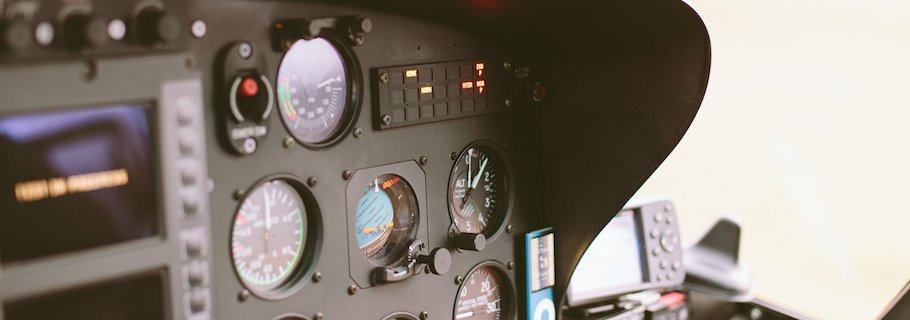Mayday is one of the few television shows that I really enjoy (I believe it may be called Air Disasters in the United States and Air Crash Investigations elsewhere in the world). It is a docudrama series about plane crashes, of all things. It sounds morbid, I admit, but I find it fascinating.
One of the episodes unravels the story of a plane that only narrowly averted disaster. The airliner had been flying along with everything appearing normal when suddenly it began to experience all kinds of strange problems. It gyrated across the sky, plummeting thousands of feet at a time and turning violently to one side. One and then two of the four engines stalled and failed, leaving the plane without the power it needed to maintain level flight. The pilot and copilot responded instinctually, doing their best to right the course of the aircraft. Meanwhile hundreds of passengers waited in abject terror, not knowing if they would live or die. The pilots fought valiantly and eventually found they were able to control the plane. Mysteriously, the engines restarted and were again able to provide sufficient power. The pilots directed the plane to a nearby airport and landed safely. Only a handful of passengers experienced serious injury, though the plane sustained heavy damage from the immense loads placed on it during the erratic flight.
In the aftermath, investigators found that almost everything that had gone wrong had been the fault of the pilots. When the plane encountered significant turbulence the pilots should have responded according to their flight training and according to the plane’s manual. Instead, they relied on instinct. And then, when the plane began to experience further complications, the pilots ignored the instruments that should have directed them to the source of the problem and the straightforward solution. They swung the plane violently from side to side attempting to right it because they ignored the aircraft’s instrument that told them where the horizon was and how to keep the plane level. They ignored the instruments that told them that their engine problem was not as serious as they thought. Blinded by the stress of the situation, they ignored the manual and did things their own way. It very nearly cost them their lives and the lives of hundreds of passengers.
Those pilots refused to trust their instruments, relying instead on their flawed assessment of the situation. Even though they thought they saw the situation clearly, they were in fact flying blind because they refused to heed the information conveyed to them by their instruments. In the book Polishing God’s Monuments Jim Andrews makes a similar connection when he reflects on a similar disaster.
What made this even a double calamity was the lethal convergence of two factors: bad weather and pilot error. The investigative report of the incident indicated the unfortunate pilot was flying in heavy fog. It went on to explain that when a pilot is flying in those conditions, it is vital that he rely solely on his instruments as opposed to flying “by the seat of his pants.” This is because without a visual point of reference, one’s senses can be easily fooled into thinking the plane is doing the exact opposite.
Though the pilot in this story was apparently quite experienced, he was notorious among his peers for having one fatal flaw: he tended to rely predominantly on the feel of the plane and his visual reference, rather than to trust the guidance of his instruments. In the report, his colleagues remarked that they could never understand why such a well-trained pilot was so disposed to this grievous error, though they warned that for new pilots, it’s not an easy skill to master.
Neither is it an easy spiritual lesson to learn.
We are prone to this same foolishness in our spiritual lives. Rather than trusting in the “instruments” given to us in the Word of God, we too often trust in our instincts and our internal guidance. Rather than relying on what is given to guide us and what is far more trustworthy, we rely on things that are always changing, always imperfect. As Andrews says, there is a difference “between walking by faith and walking by feelings—trusting our instruments rather than our sight or instincts. In the fog of life our feelings will mock our faith and fairly scream at us that God has walked out on us, but our instruments will always reassure us that he is still there, walking right beside us.”
This is not to say that our feelings are useless or that we should never heed them. God gave us feelings and emotion and even instincts for a reason; they often serve as useful guides to what is happening in our hearts. It sometimes seems that those who place the greatest emphasis on revealed truth are those who place the least emphasis on feelings; this should not be so. But we must always realize that only one of these is a standard. Only one is firm and unchanging. Only one is perfect.
The Word provides that fixed, unchanging, flawless standard. The Word is the instrument that will guide us and reassure us, even when the fog is heavy, when the engines have stopped and when we don’t know whether we’re going up or down.










